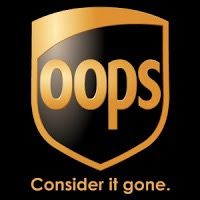ChangingStory1.7-Parody

I seem to create my own parodies, with The Muse playing Jeeves to my Wooster. The key to great parody might be the simple, completely human act of failing to hide something from someone else. The Wooster in me presumes he’s a lot smarter than he could possibly be, and that everyone else must be a whole lot dumber than they’re really likely to be. The result reliably produces parody.
I’ve been looking for real-life parodies, and finding them everywhere I look: in The Management Disease so prevalent in the budding junior executive class and in The Project Management Problem found flourishing in most every organization.
The Management Disease exhibits its presence whenever a manager perceives his organizational subordinates as somehow intellectually and/or emotionally subordinate, too. This results in a Father Knows Best Parody, where everyone but father watches his fallacy play out in Emperor’s New Clothes-fashion as the diseased manager second-guesses those tasked to actually do stuff. Severe cases even insist they know better how a subordinate feels, sometimes even demanding that they feel the way they’re ‘supposed’ to feel rather than how they say they do feel.
The Project Management Problem clearly qualifies as an epidemic in today’s organizations. It presents itself whenever an effort gets presumed as supposed to be completed on-time, on-budget, and on-spec, though any one or any combination of these three anchors can produce high-quality absurdity. Everyone knows the underlying fallacy created by expecting to satisfy these lofty aspirations, but nobody seems enthusiastic about owning up to this underlying absurdity. Quite the opposite. Any certified project manager must swear fealty to The Three Ons as a precondition for certification, though no technology or method exists—or, in fact, could exist—to predictably produce this outcome.
The PMP (Project Management Problem) produces much drama, considerable comedy and no shortage of tragedy as the players try to protect each other from recognizing this simplest of truths, lest the disclosure suggest something unthinkable about their own ability to engage. One must, it seems, exhibit foolhardy courage in the face of almost certain failure in order to be allowed on the stage. Admit, twelve step-like, to a personal inability to guarantee The Three Ons, and the story, the pervasive myth, insists you’ll lose all credibility, maybe even get yourself labeled defeatist.
It might be true that every profession practices within some foundational parody of its originating intention, insisting upon some firm and delusional belief as the price of admission and the continuing cost of the professional’s place inside. The professional dare not speak of this one small thing, which was originally perhaps as small as some Bertie Wooster shenanigan, but over time, through continued iteration, becomes somehow the defining absurdity; like The Management Disease and The Project Management Problem have now become.
Some pundit somewhere might well label as Paradigm Shift the successful violation of such beliefs, but the beliefs most certainly persist. Such shifting never belongs to the masses, and seems especially reserved at first for an audacious few. Over time, even the most profoundly unspeakable truth might find its wider voice. For now, the fact might need to remain mostly unmentionable that my manager sometimes seems to be suffering from a disease she’s clearly unaware she has and that not even this latest best laid plan could possibly satisfy The Three Ons, if only to preserve the entertainment value of this latest performance.
©2014 by David A. Schmaltz - all rights reserved


